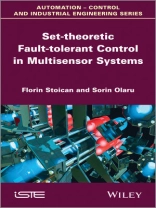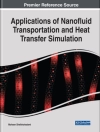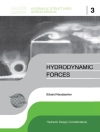Fault-tolerant control theory is a well-studied topic but the
use of the sets in detection, isolation and/or reconfiguration is
rather tangential.
The authors of this book propose a systematic analysis of the
set-theoretic elements and devise approaches which exploit advanced
elements within the field. The main idea is to translate fault
detection and isolation conditions into those conditions involving
sets. Furthermore, these are to be computed efficiently using
positive invariance and reachability notions. Constraints imposed
by exact fault control are used to define feasible references
(which impose persistent excitation and, thus, non-convex feasible
sets). Particular attention is given to the reciprocal influences
between fault detection and isolation on the one hand, and control
reconfiguration on the other.
Contents
1. State of the Art in Fault-tolerant Control
2. Fault Detection and Isolation in Multisensor Systems
3. Residual Generation and Reference Governor Design
4. Reconfiguration of the Control Mechanism for Fault-tolerant
Control
5. Related Problems and Applications
About the Authors
Florin Stoican received a B.E. degree from the
‘Politehnica’ University of Bucharest, Romania, in 2008
and his Ph D from SUPELEC, France in 2011. He held an ERCIM
Postdoctoral Fellowship with NTNU Trondheim, Norway, in 2012, and
is currently Assistant Professor at ‘Politehnica’
University of Bucharest. His main interest is the fault tolerant
control of dynamical systems through the prism of set theoretic
elements. His current work involves further results in set theory
and constrained optimization problems.
Sorin Olaru received an M.S. degree from the
‘Politehnica’ University of Bucharest, Romania, and
both his Ph D and Habilitation from University Paris XI, France,
being awarded the European Commission Archimedes Prize in 2002.
Since 2001 he has held different positions at INRIA and SUPELEC in
France and visiting appointments at the University of Newcastle,
Australia and NTNU Trondheim, Norway. He is currently Professor at
SUPELEC, a member of the INRIA Disco team and senior member of
IEEE. His research interests include optimization-based control
design and the set-theoretic characterization of constrained
dynamical systems.
Tabella dei contenuti
Preface ix
Introduction xi
Chapter 1. State of the Art in Fault-tolerant Control 1
1.1. Fault detection and isolation 4
1.2. Control reconfiguration 6
1.3. Sets in control 9
1.4. Existing set-theoretic methods in FTC 22
Chapter 2. Fault Detection and Isolation in Multisensor Systems 27
2.1. Problem statement 28
2.2. Fault detection and isolation 35
2.3. Recovery mechanism 45
Chapter 3. Residual Generation and Reference Governor Design 55
3.1. Residual signals 56
3.2. Reference governor synthesis 68
Chapter 4. Reconfiguration of the Control Mechanism for Fault-tolerant Control 73
4.1. Active FTC with fix gain feedback 76
4.2. Active FTC with MPC control 89
4.3. Passive FTC control 96
Chapter 5. Related Problems and Applications 103
5.1. Set theoretic issues 103
5.2. Illustrative examples 113
Conclusions 133
Bibliography 139
Index 151
Circa l’autore
Abdelhamid Mellouk, UPEC, Li SSi Lab, Paris -Est University, Paris, France.
Hai Anh Tran, UPEC, Li SSi Lab, Paris -Est University, Paris, France.
Said Hoceini, UPEC, Li SSi Lab, Paris -Est University, Paris, France.












